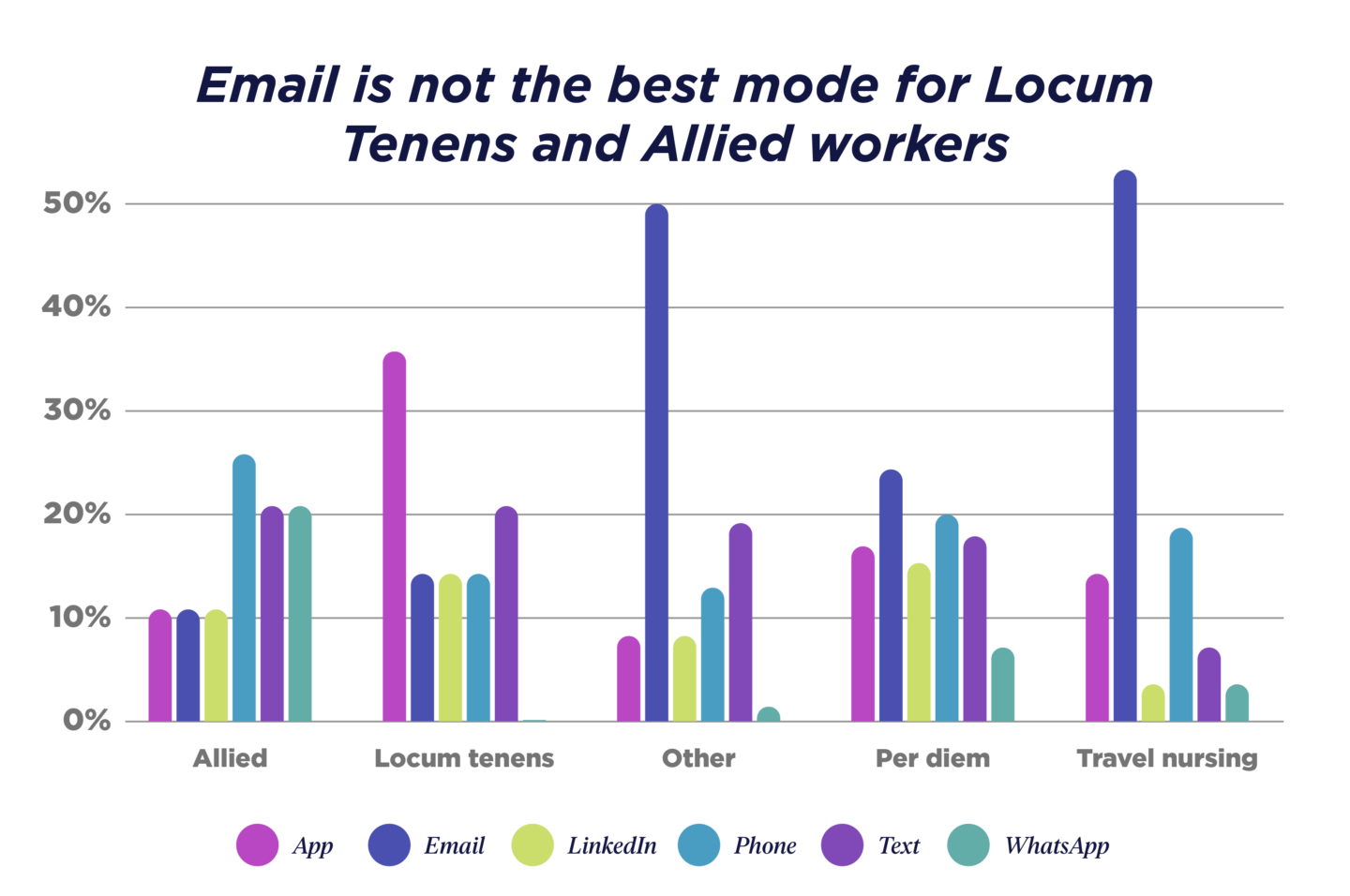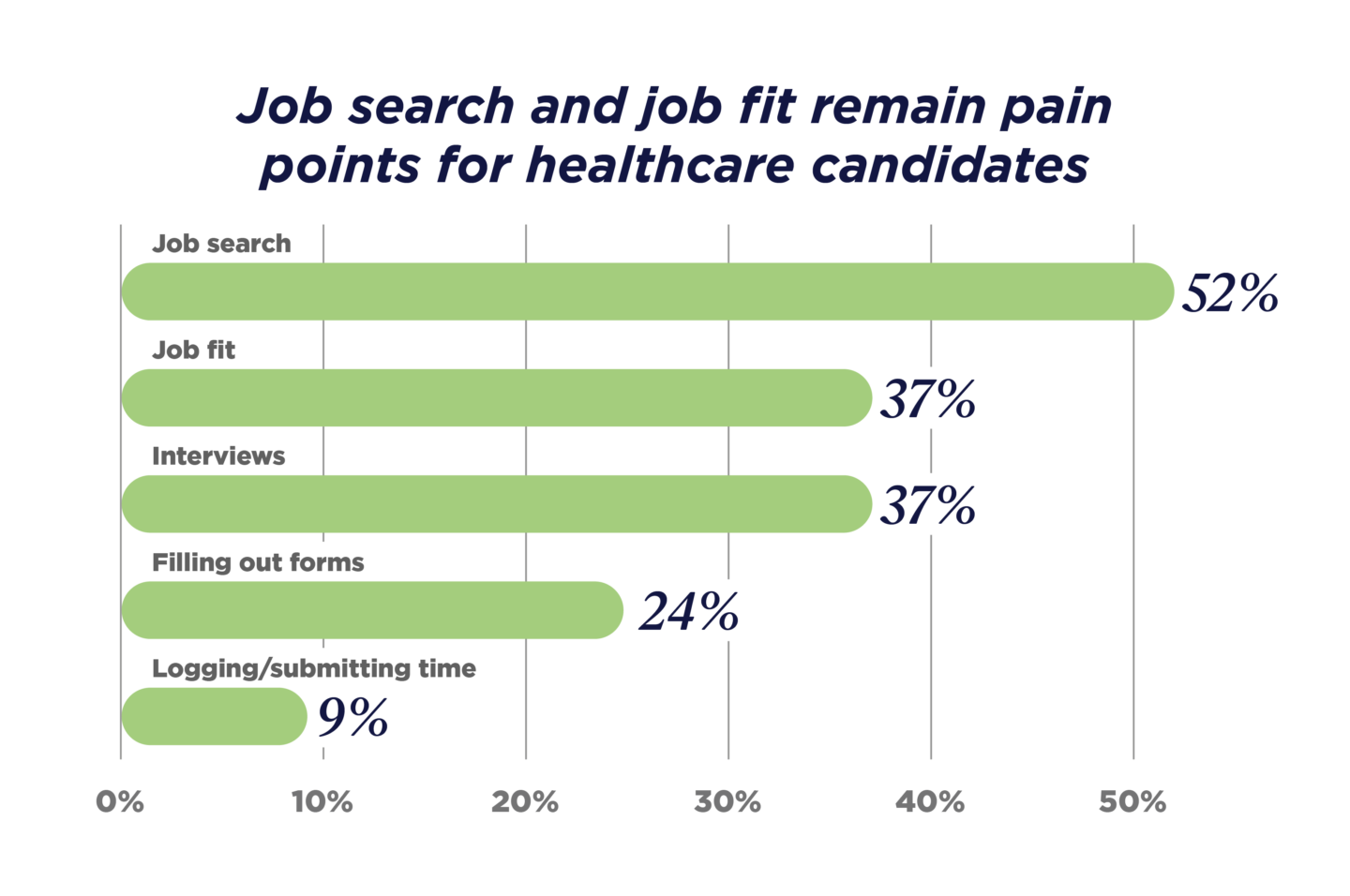Candidate sentiment
Post-pandemic, contingent workers in healthcare are reevaluating how they want to work and what they expect from staffing firms, platforms, or apps. Many are considering full-time alternatives, but those who remain in the contingent workforce want to work with full-service firms that offer a seamless candidate experience.
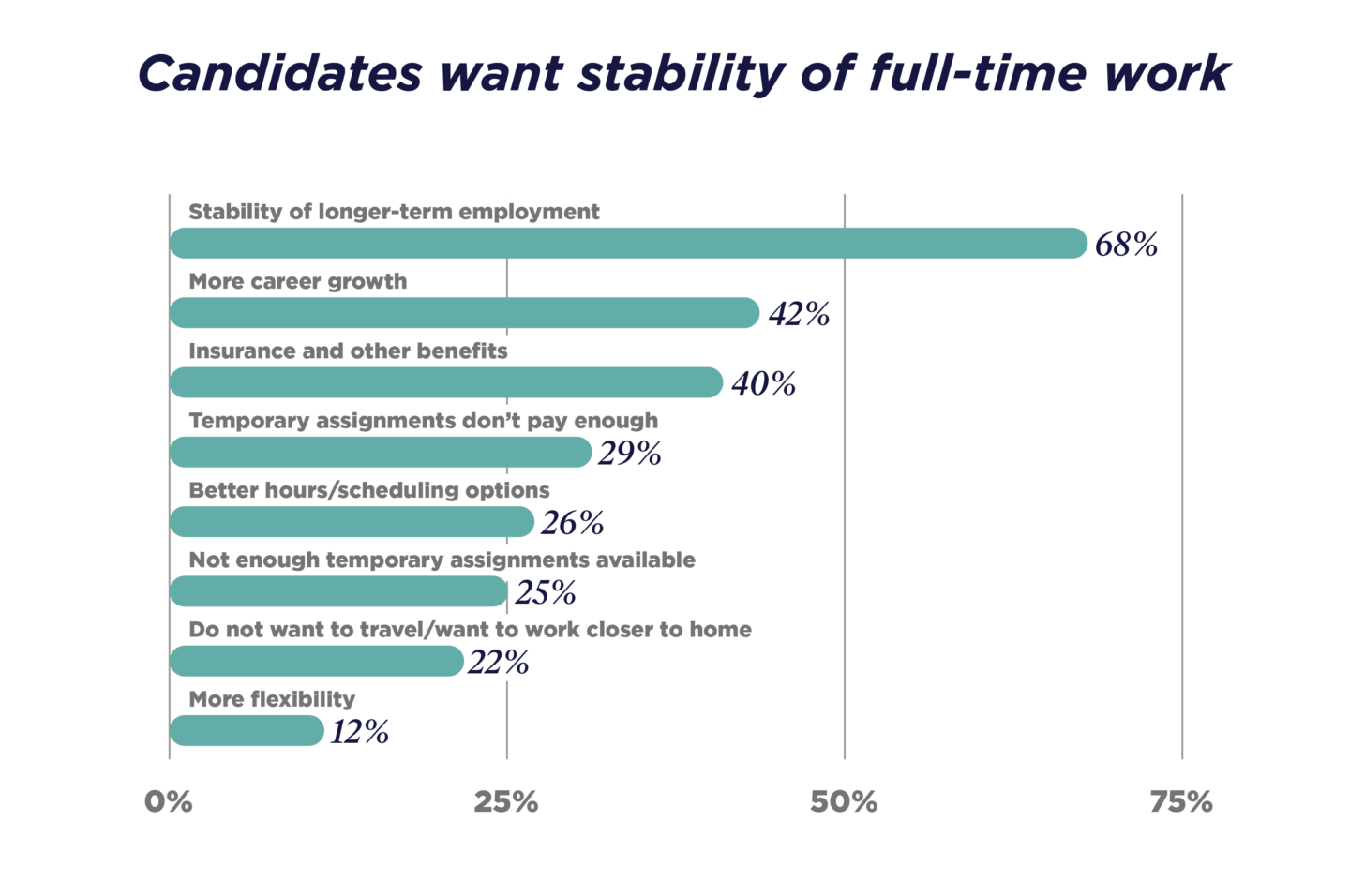
What are your top reasons for making this change?
More than ⅔ of respondents are seeking the stability of full-time employment — not surprising in a period of economic uncertainty. Reaching out proactively with new opportunities can give employees the stability they seek while keeping them in contingent staffing.
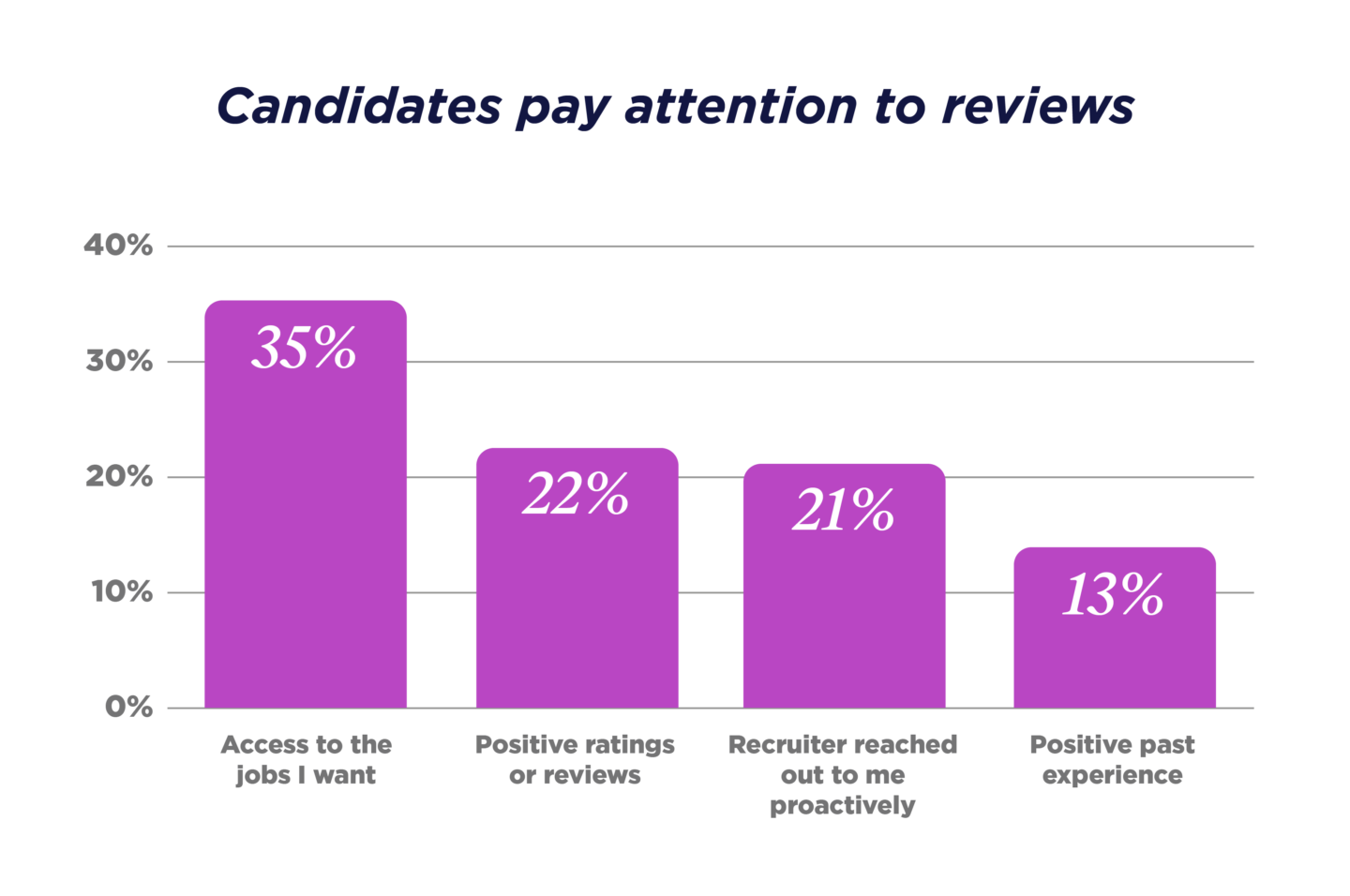
What is the primary reason you chose to work with your most recent staffing firm/recruitment agency?
The top reason healthcare candidates choose a staffing firm is because of the jobs they post. But it is interesting how much impact positive reviews and recruiter outreach can have, influencing more than 40% of candidates between them. Carefully managing online reviews could be an easy way for firms to win over more talent.
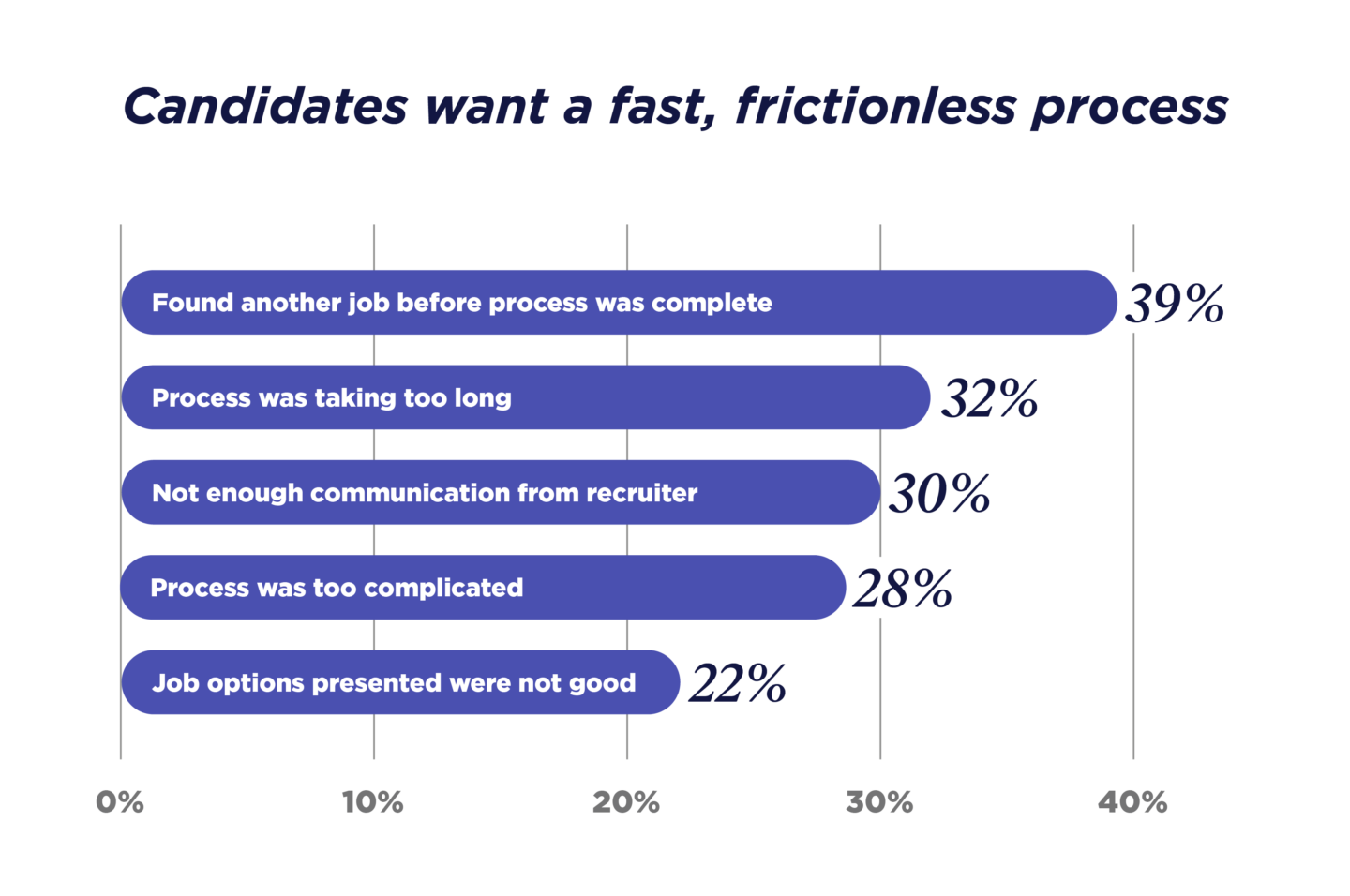
If you gave up working with a recruiter or staffing agency at any point, what were the reasons?
Many candidates dropped out of the process because it didn’t deliver results fast enough, either because they found a job elsewhere faster or they simply got frustrated with the process. And nearly a quarter found the process too complicated. Automation can help with both these issues, improving the candidate experience.
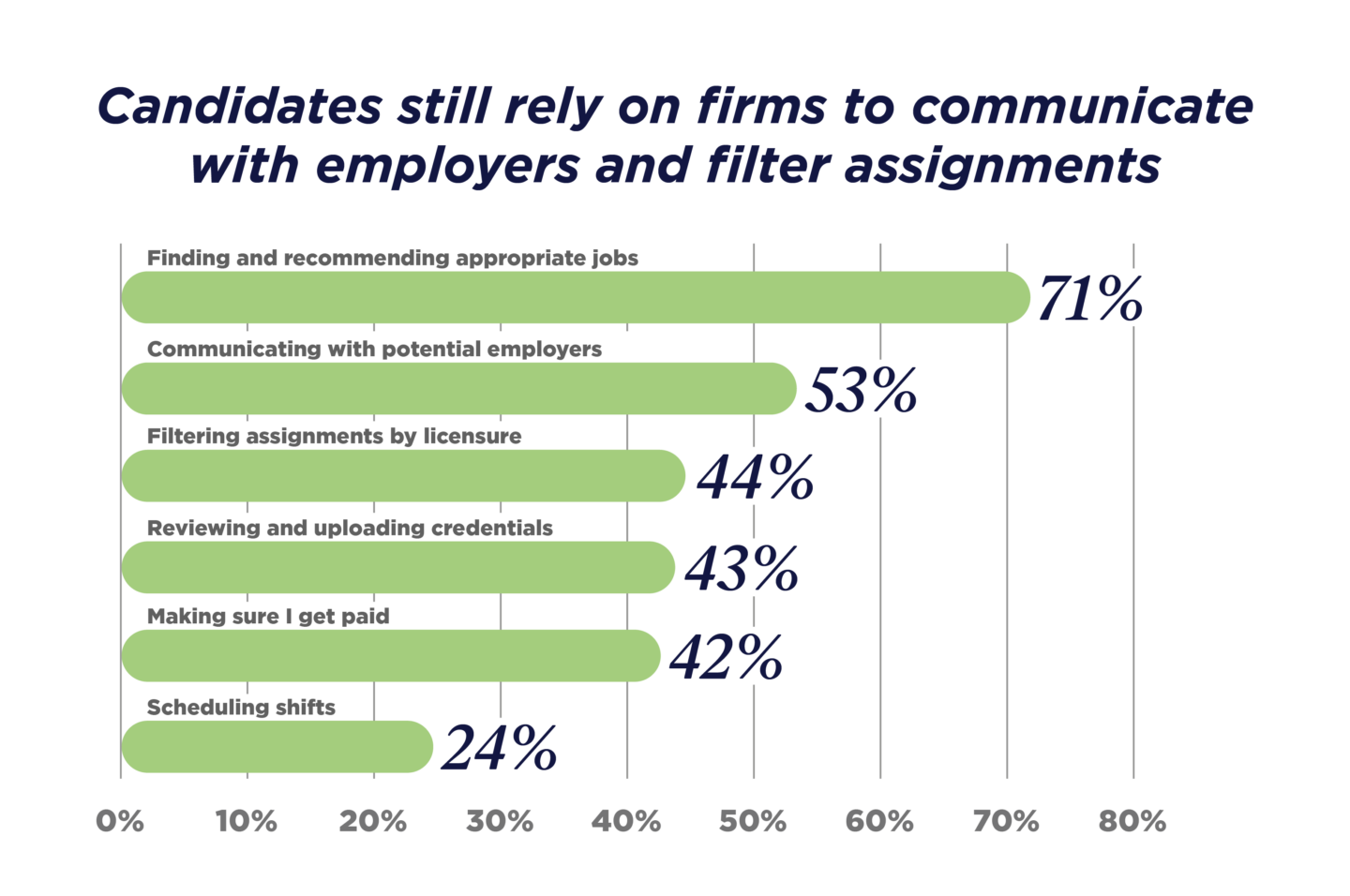
What do you expect a staffing firm to handle for you?
Healthcare candidates seem drawn to the level of support they can only get from a full-service staffing firm. First and foremost, they still trust staffing firms to recommend the right jobs. And candidates don’t want to filter through job assignments or handle all the communication with employers — they are happy to outsource this work to recruiters.
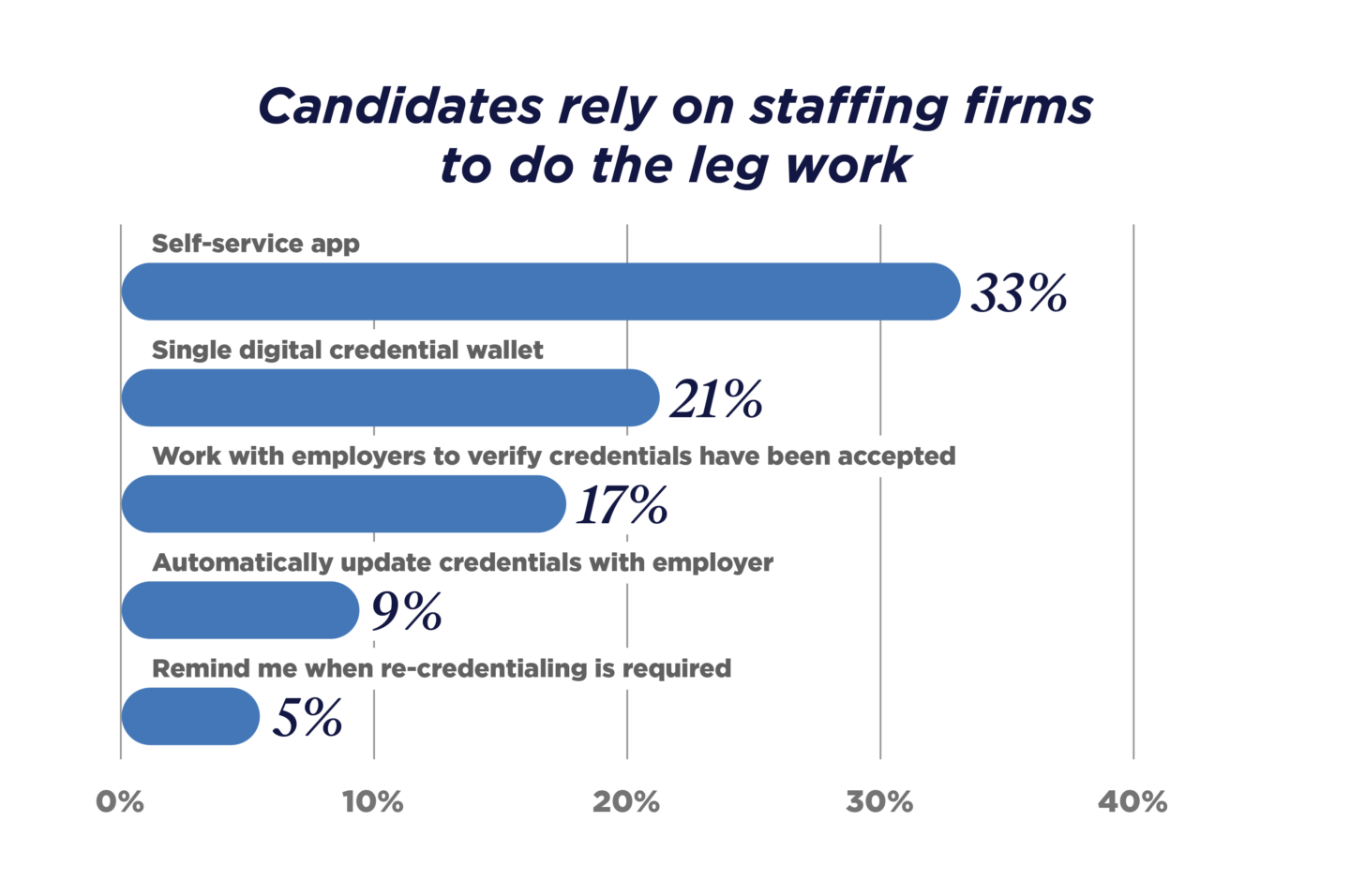
How could the recruiter most improve the credentialing process?
32% of candidates want a self-service app for credentialing — driven largely by per diem employees with more than half listing this as their top choice. And over ⅕ want a digital credential wallet that they can use again and again.
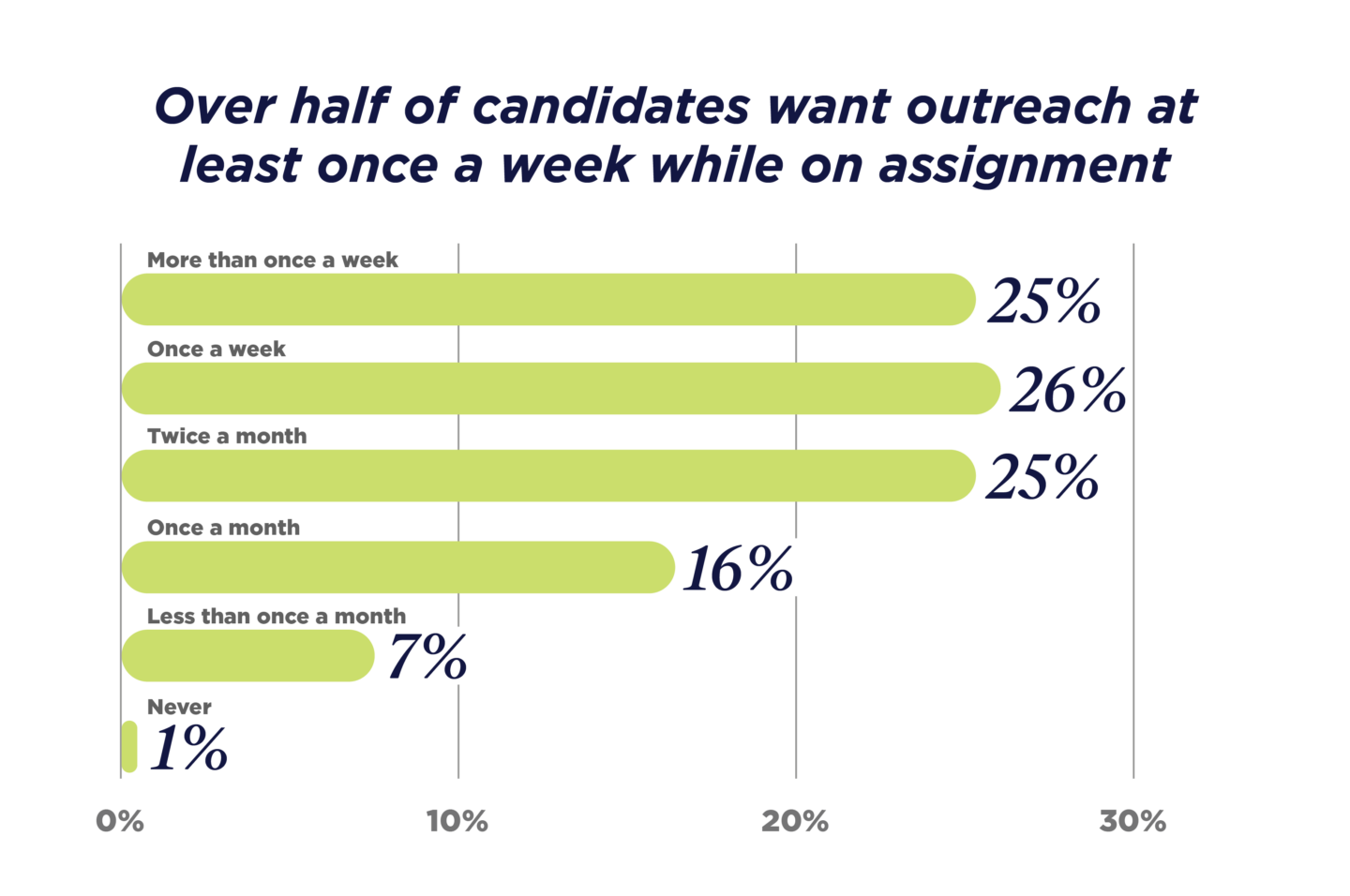
How often would you like your staffing firm to reach out while you are on an assignment?
Whether it is to check in or to line up a next assignment, contingent healthcare workers want to hear from the recruiter at least once a week. This is similar to what they expect during the job search process and can have a significant impact on candidate loyalty. Right now, 9% said their recruiter never reached out while they were on assignment.
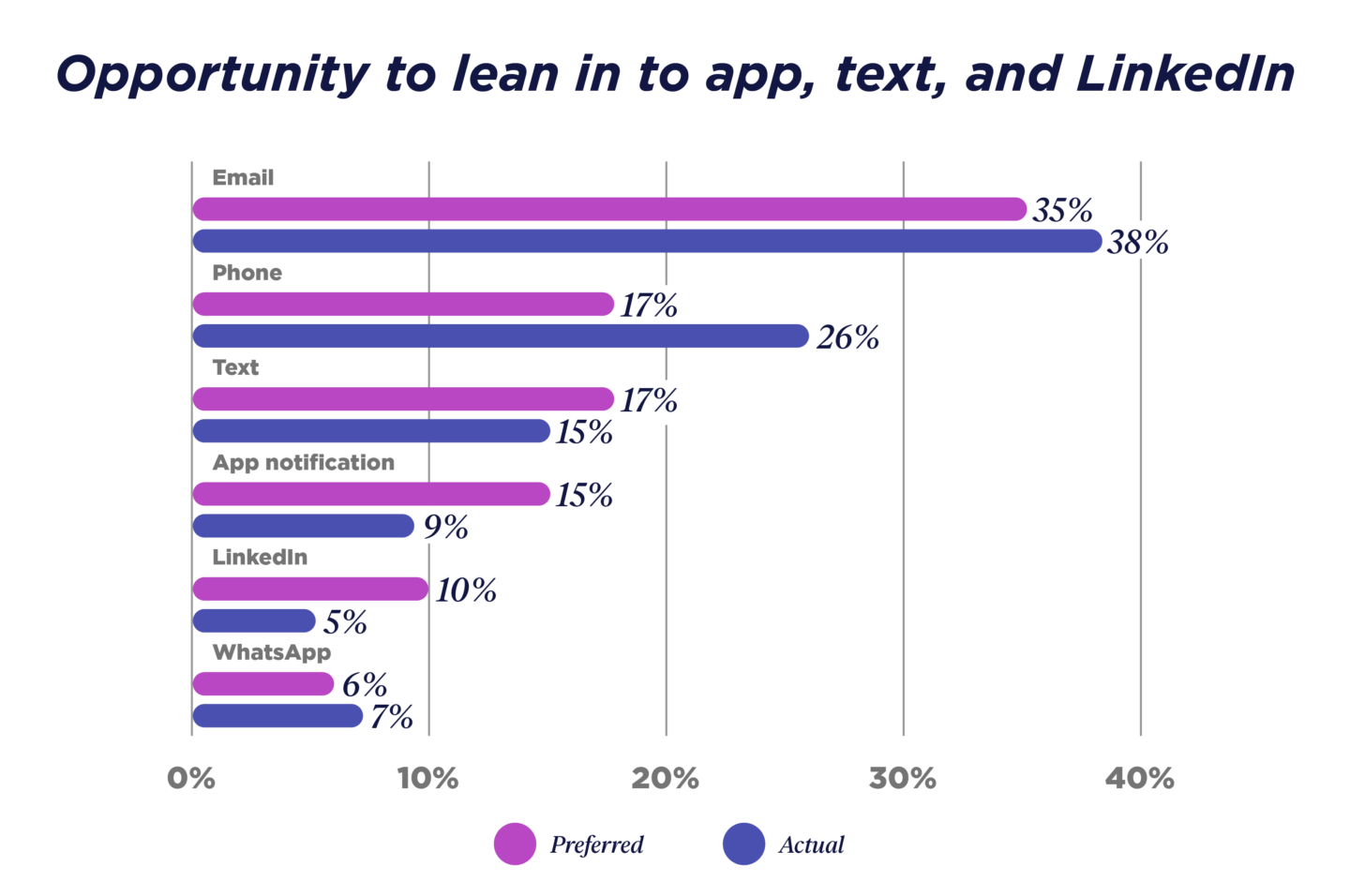
What is your top preference for how recruiters reach out to you with opportunities?
When asked how they prefer to be contacted and how their recruiter actually reaches out, there is pretty good alignment, but some areas for improvement. Recruiters seem to rely on phone communication 50% more than candidates would like. And there is the opportunity to rely more on text and app notifications. The key is to let candidates tailor their communication preferences.
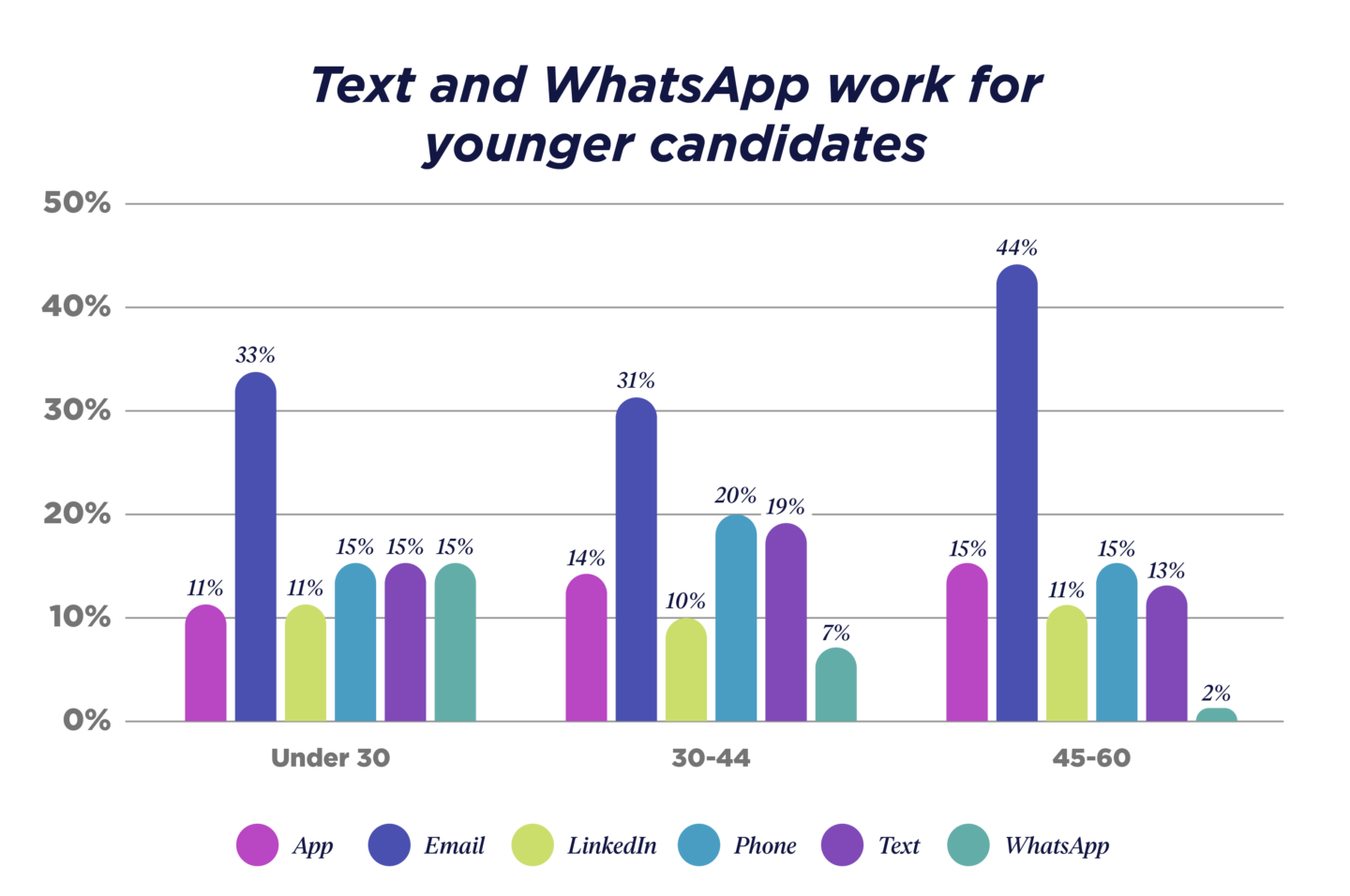
Communication preferences differ by age group
Although email is the top communication choice across age groups, there are some subtle differences when it comes to other methods. Gen Z workers are a lot more comfortable with WhatsApp, a trend that will likely increase over time. And text may be a great way to communicate with Millennial talent.
Recruitment cycle: What is working and what isn’t?
Most healthcare candidates are satisfied with the recruitment cycle, but there is definitely still room for improvement, especially around job search and credentialing. And candidates of different ages in different roles have varying expectations of the process.
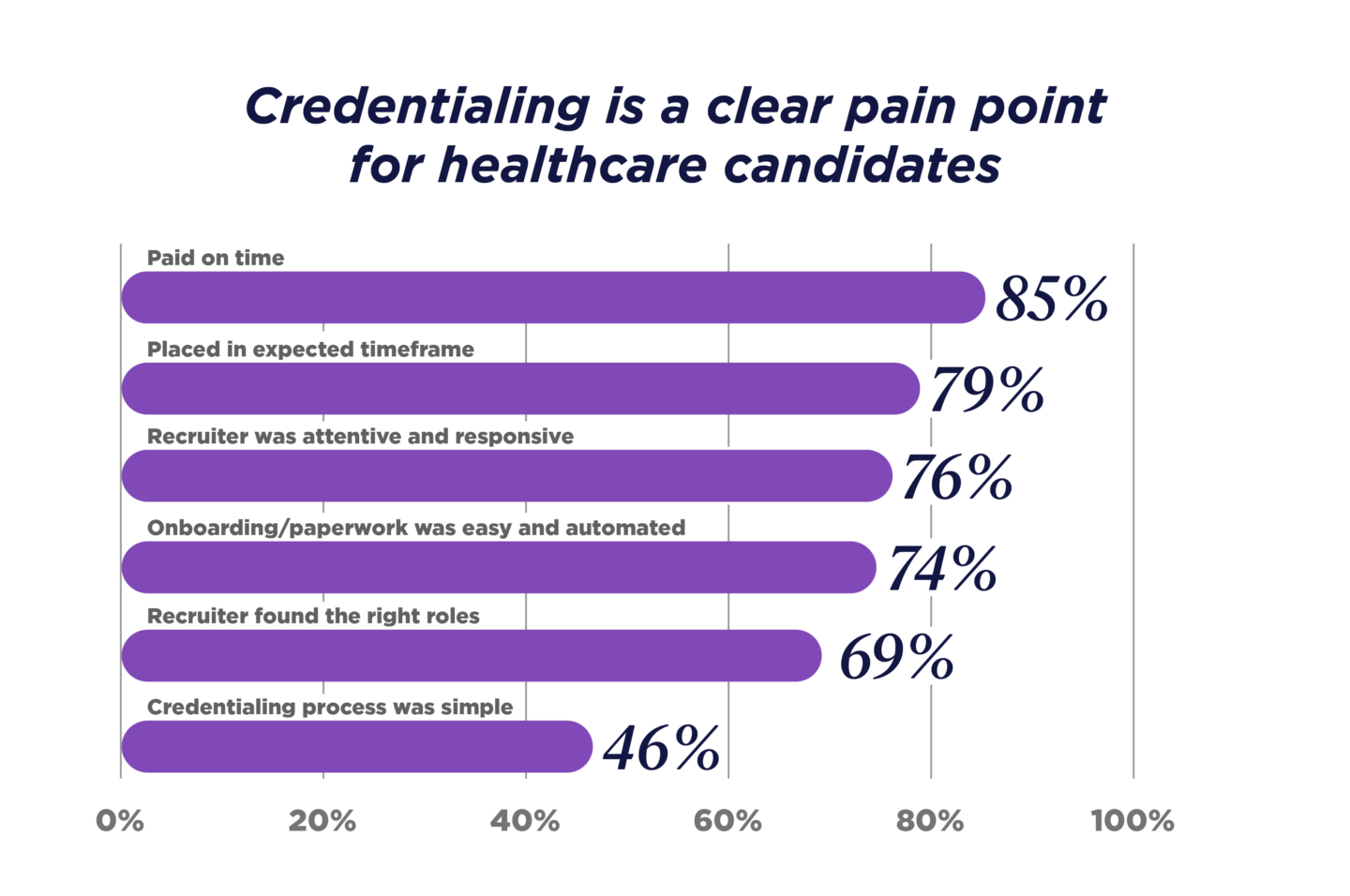
Generally positive candidate experience
For most recruitment experiences, about ¾ of candidates had a positive experience. However, only 46% felt the credentialing process was simple. Firms who want to retain the best healthcare talent will need to improve their credentialing process.
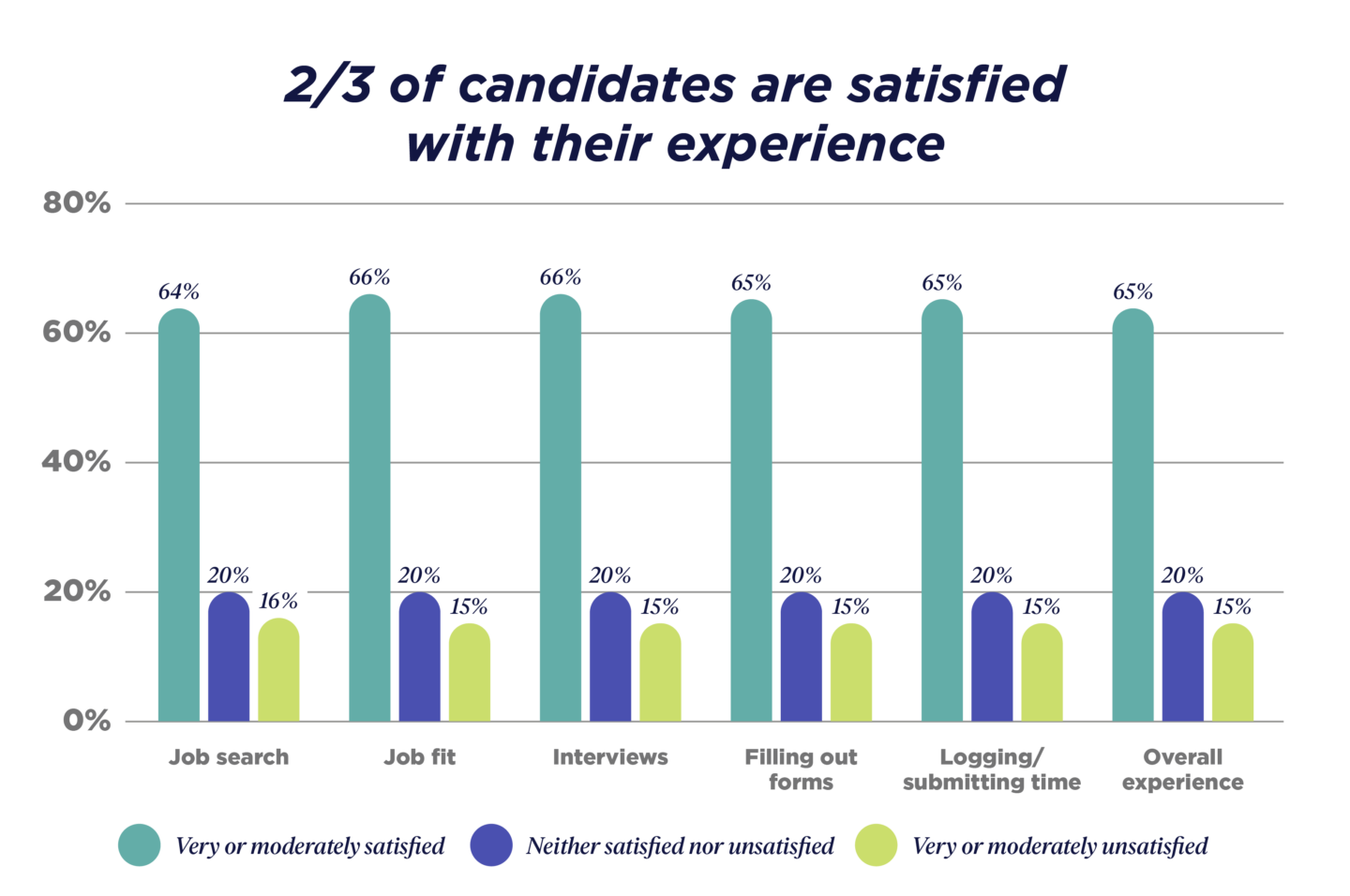
Rate your satisfaction with each stage of the recruitment process
66% would be a failing grade on most exams, and it is no better in this case. With healthcare talent pools as tight as they are and so many candidates considering permanent work, staffing firms need to create a truly frictionless talent experience to keep candidates satisfied.
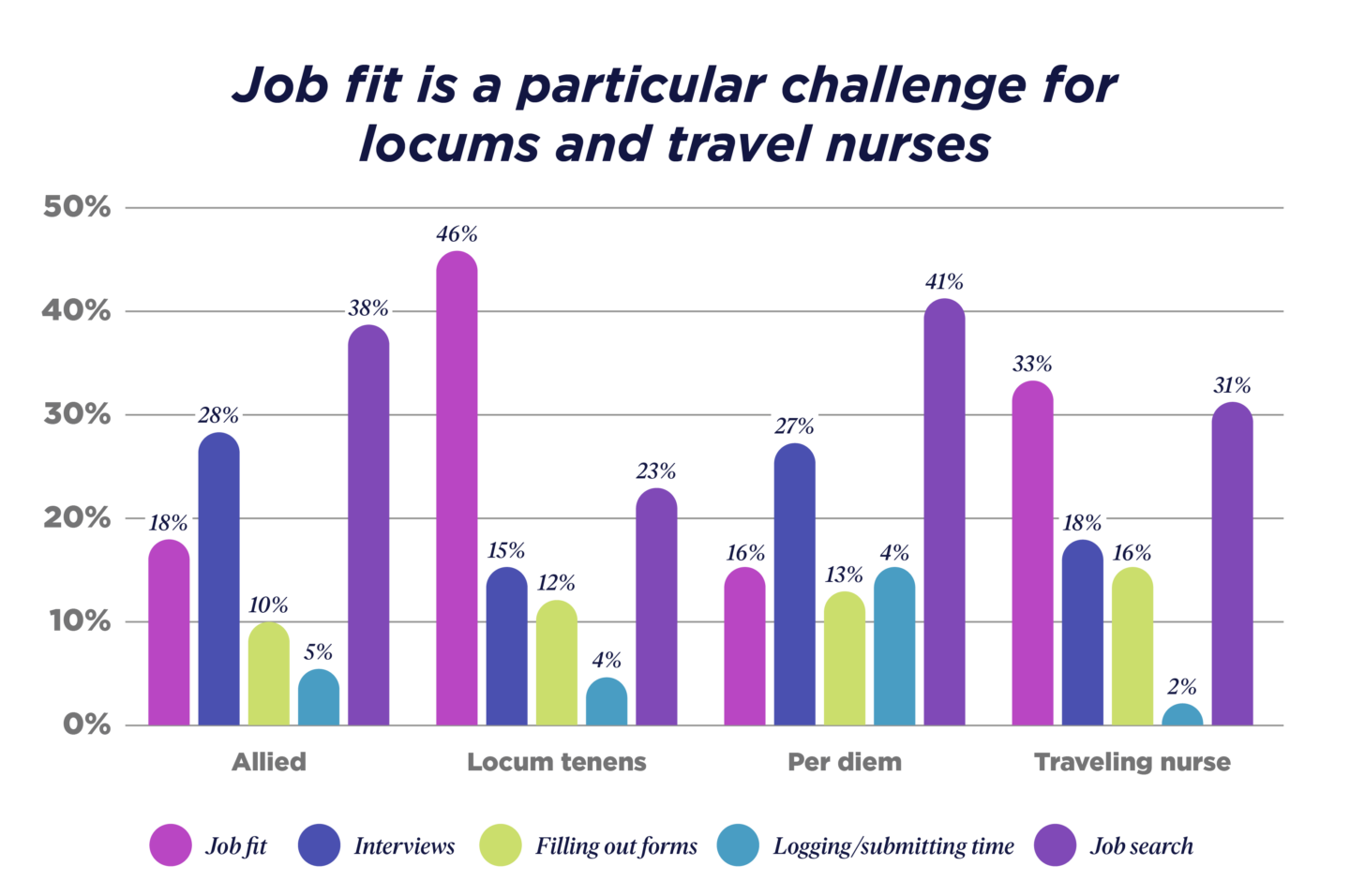
Challenges differ by role
The biggest challenge for locum tenens and travel nurses is actually job fit, highlighting the need for firms to deploy the right technology to filter jobs by licensure, credentials, and specialty. Whereas per diem and allied professionals are most concerned about support for their job search.

